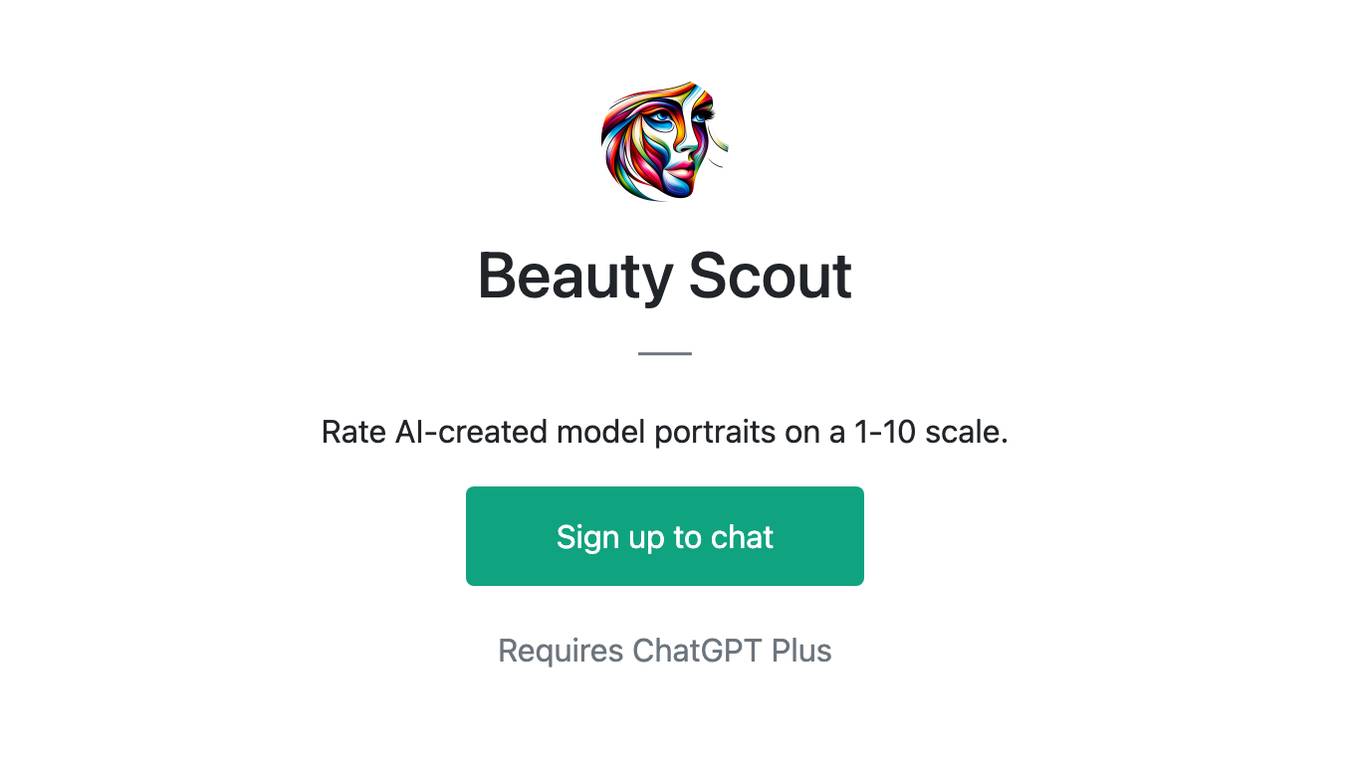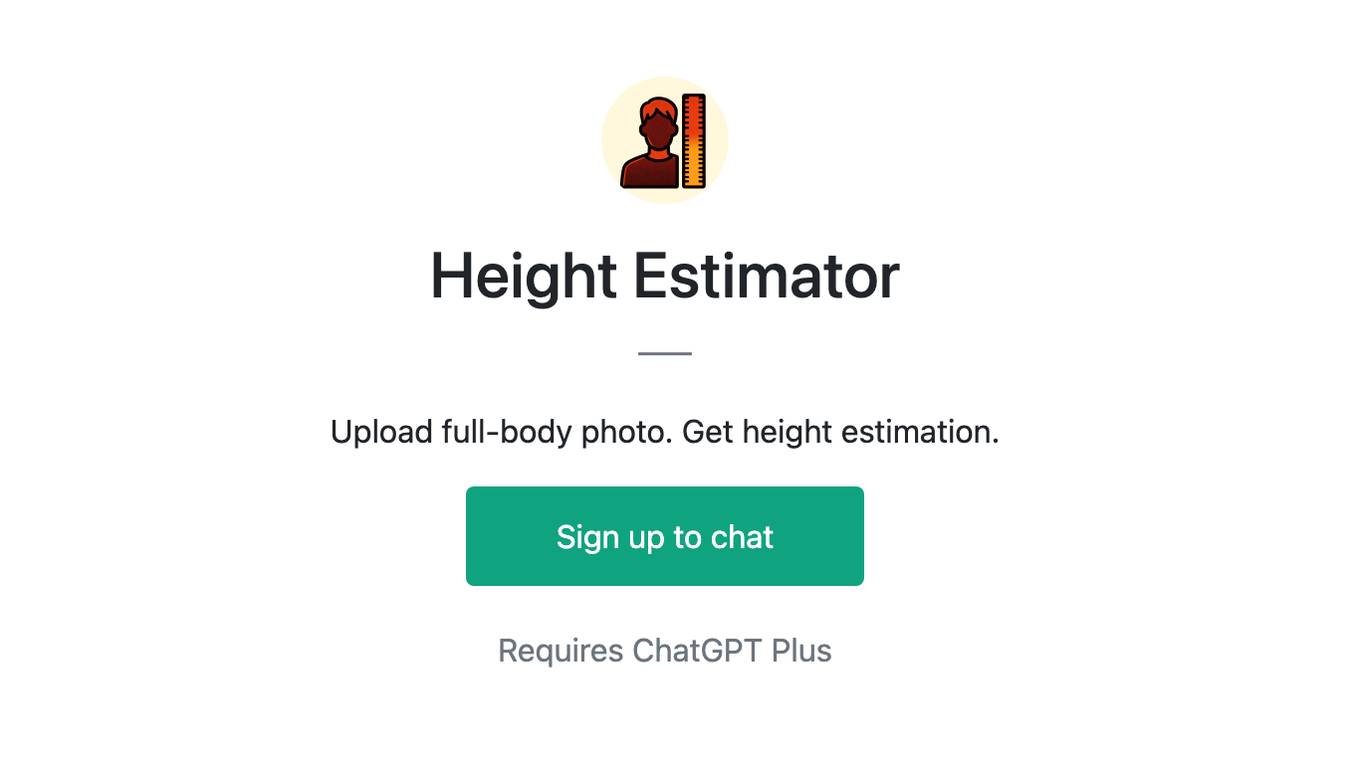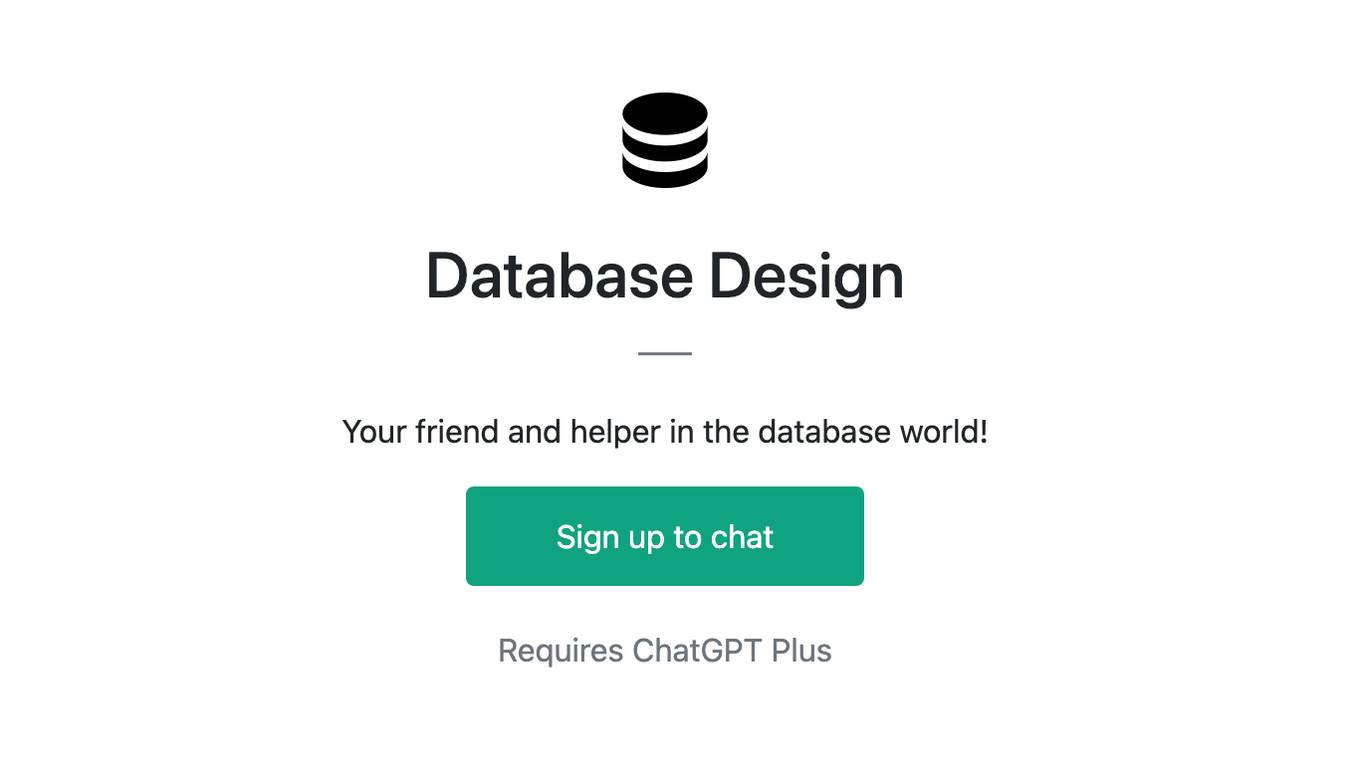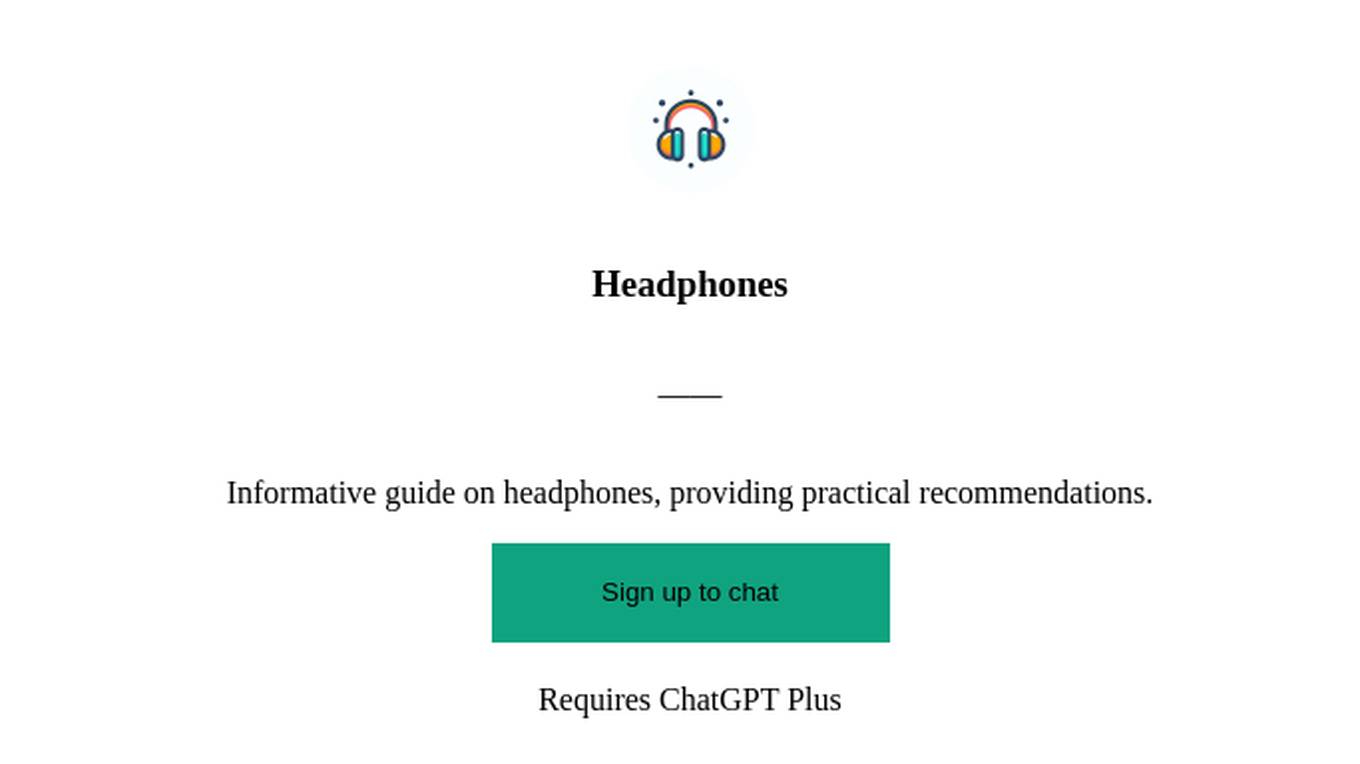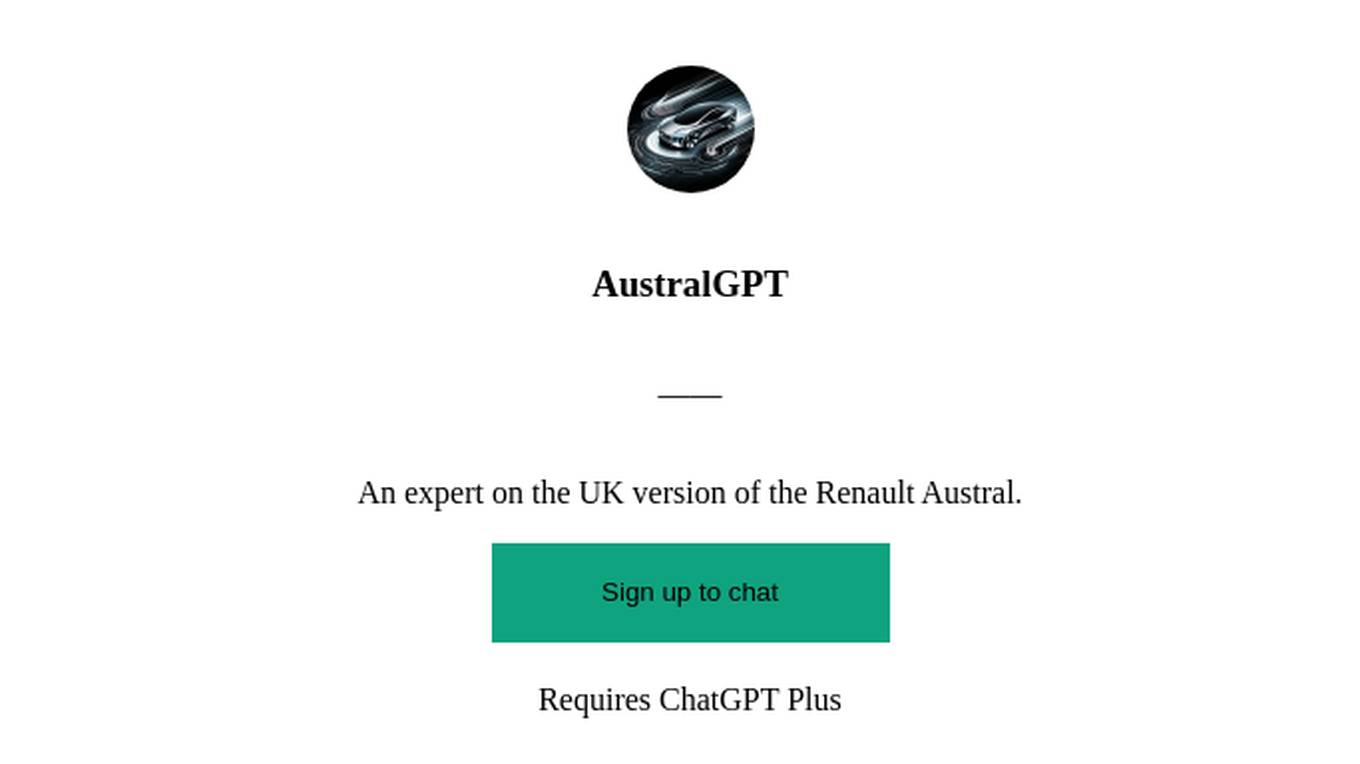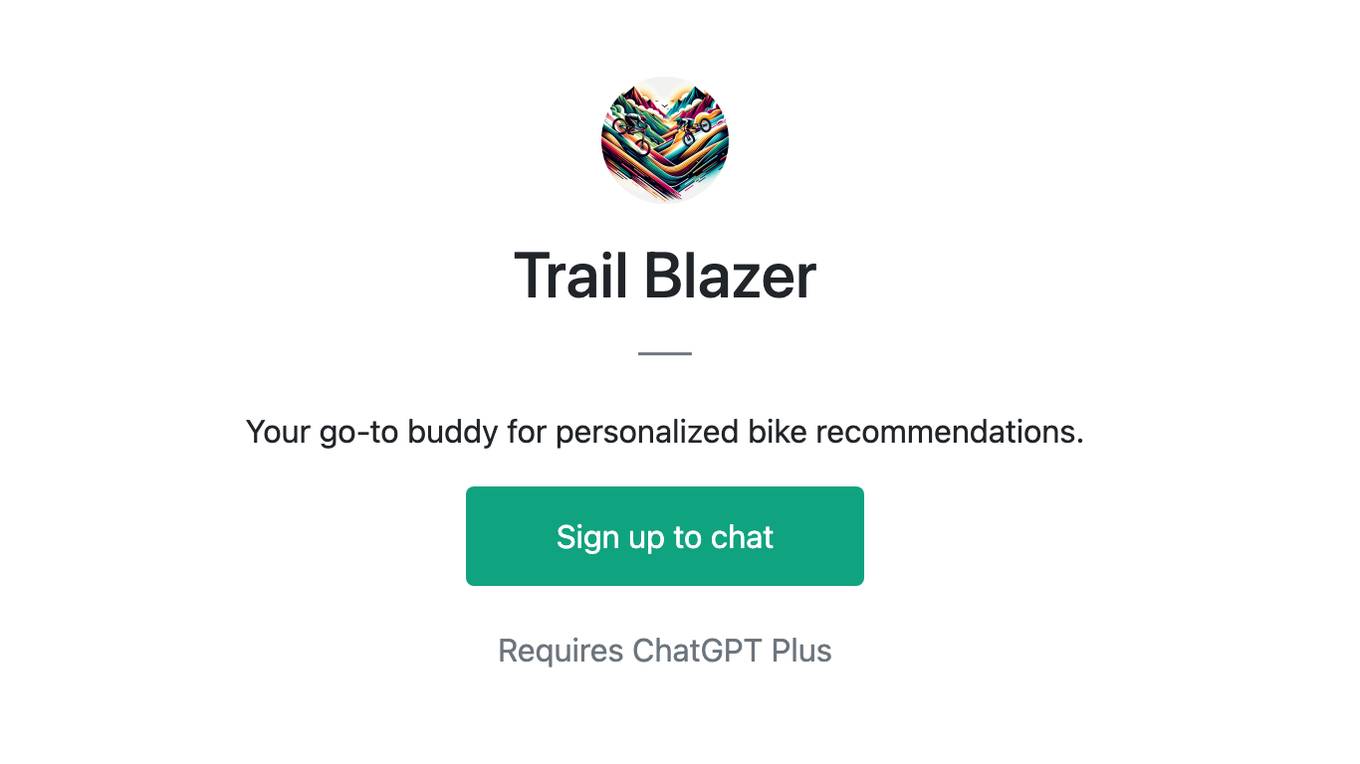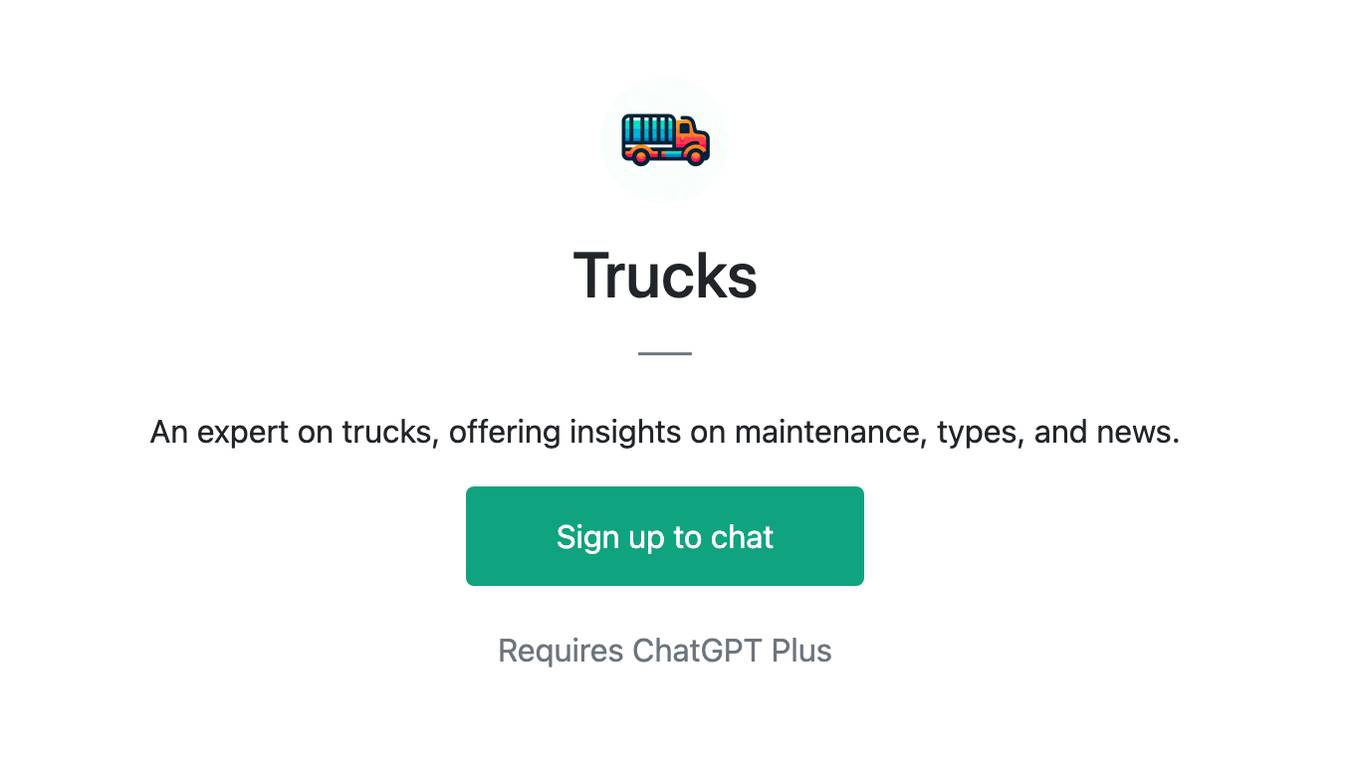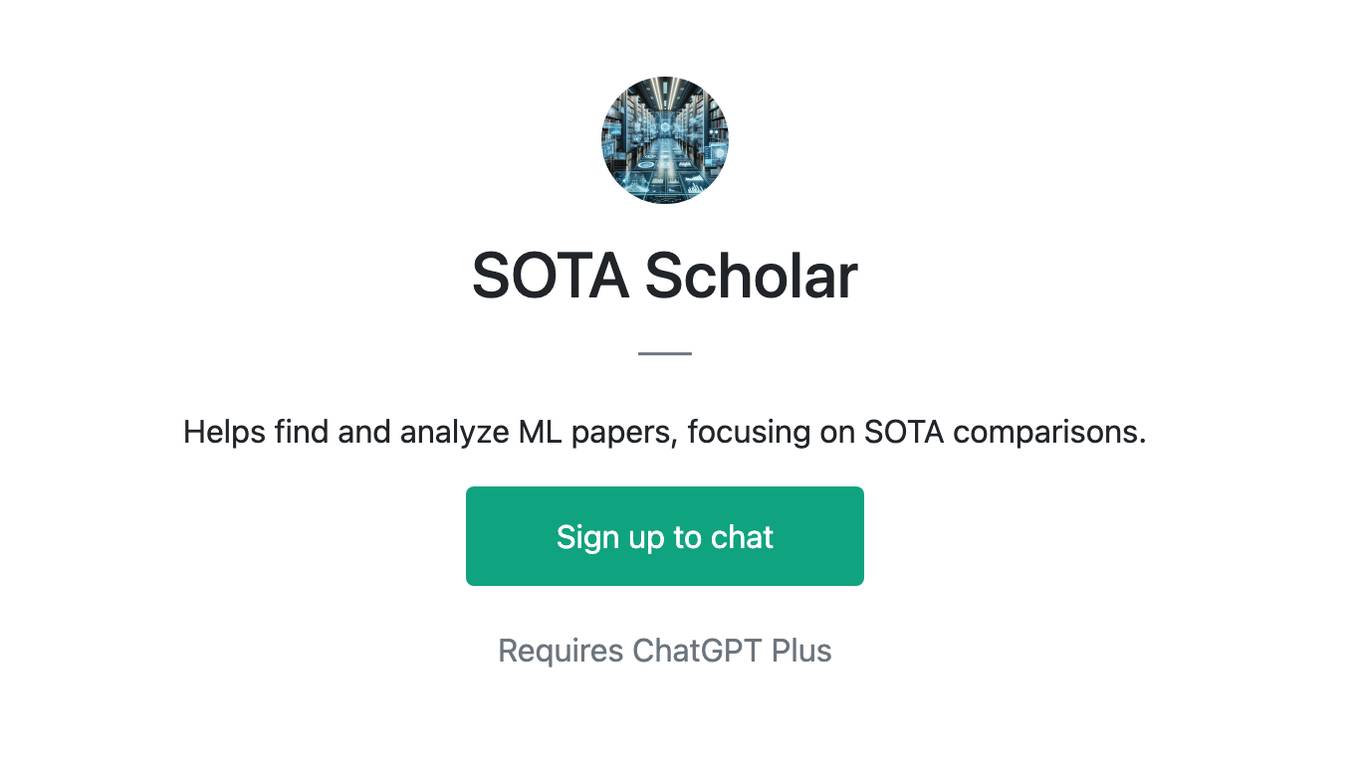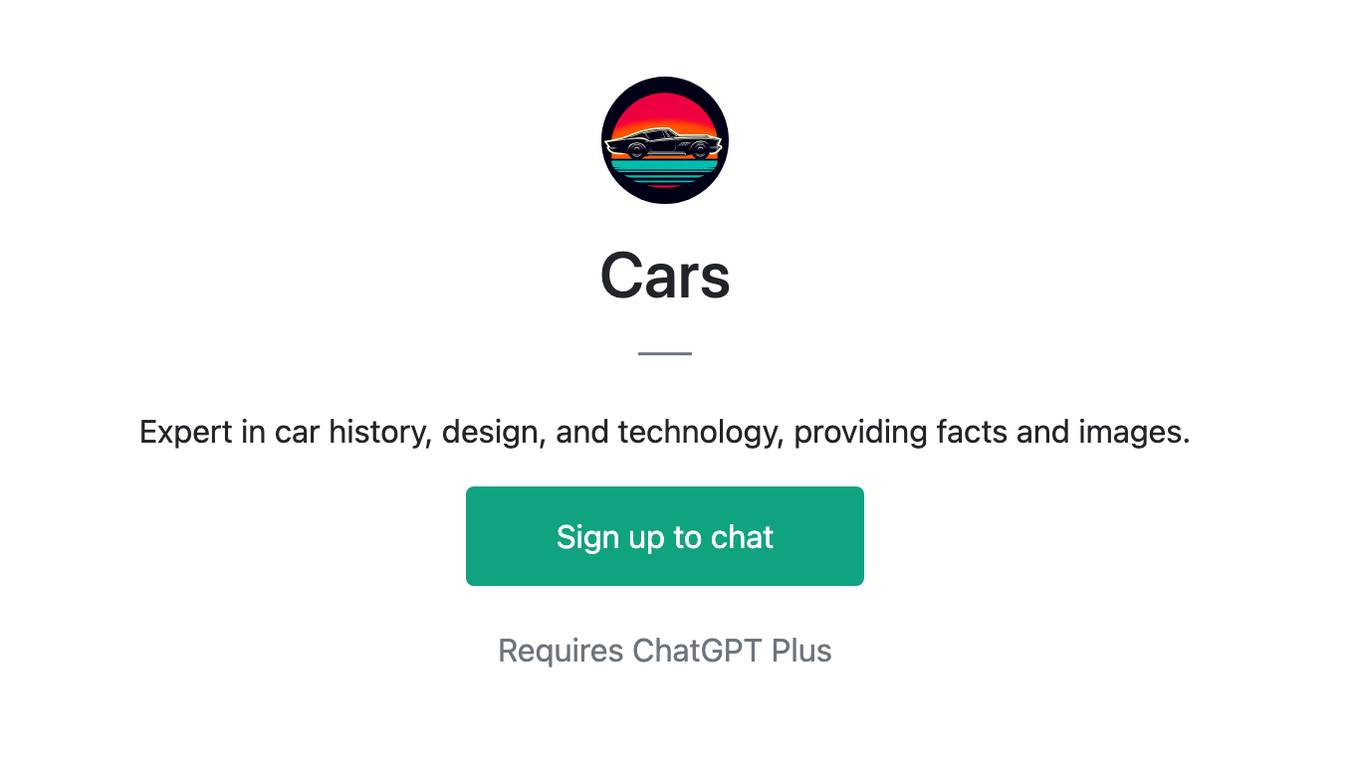Best AI tools for< Compare Model Accuracy >
20 - AI tool Sites
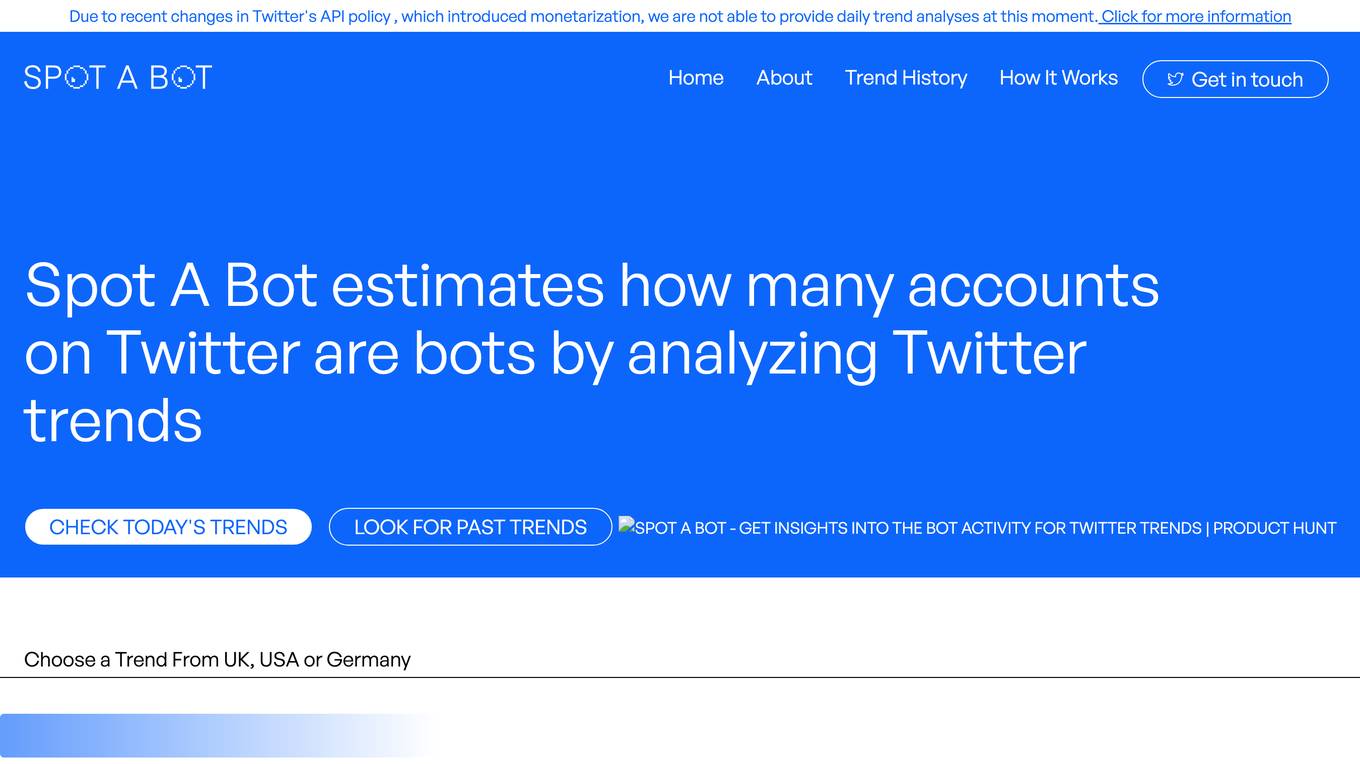
Spot A Bot
Spot A Bot is an AI tool that estimates the number of bot accounts on Twitter by analyzing Twitter trends. It provides insights into the prevalence of bot activity on the platform, helping users identify potentially automated accounts. The tool analyzes current and past trends from different regions like the UK, USA, and Germany to calculate the percentage of bot accounts. With a model accuracy of 11%, Spot A Bot has analyzed over 3,872 total accounts and 158,558 tweets. Users can stay informed about bot activity and trends on Twitter through this application.
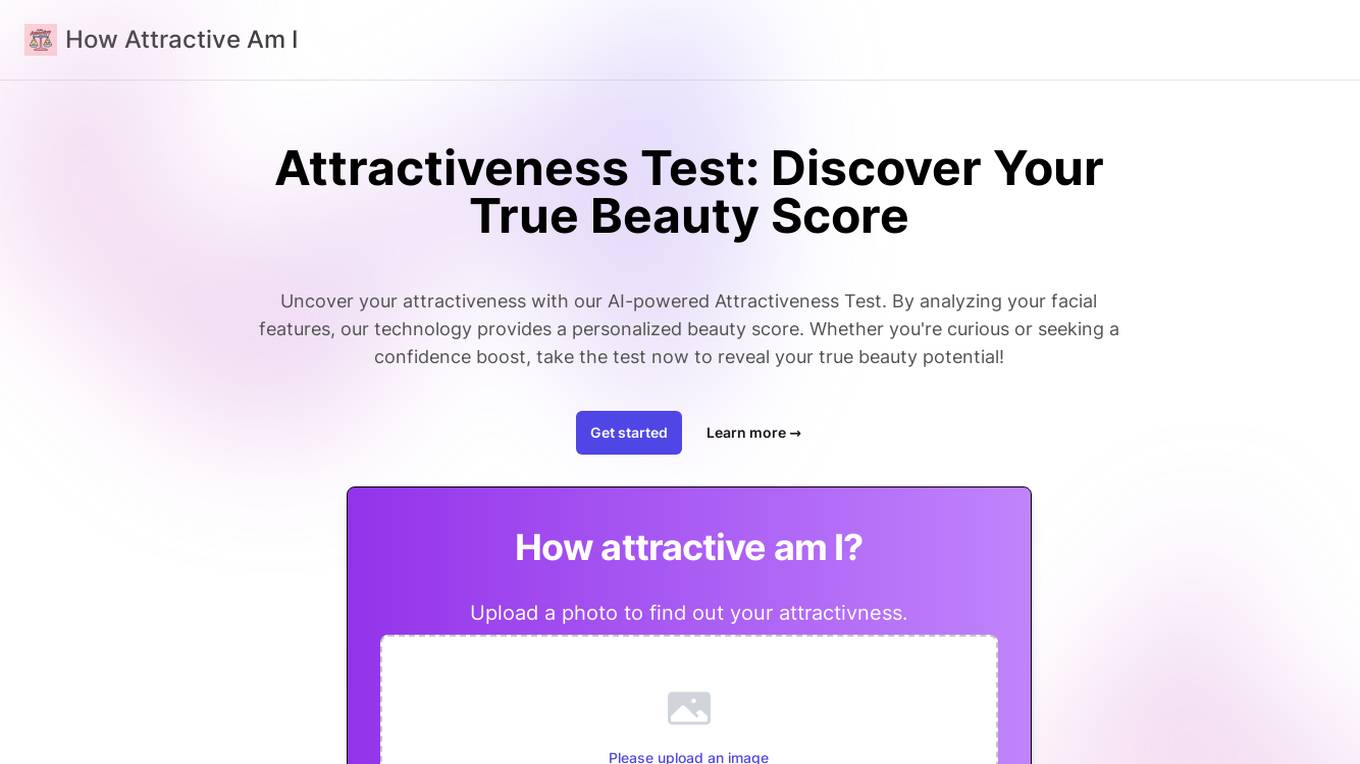
How Attractive Am I
How Attractive Am I is an AI-powered tool that analyzes facial features to calculate an attractiveness score. By evaluating symmetry and proportions, the tool provides personalized beauty scores. Users can upload a photo to discover their true beauty potential. The tool ensures accuracy by providing guidelines for taking photos and offers a fun and insightful way to understand facial appeal.
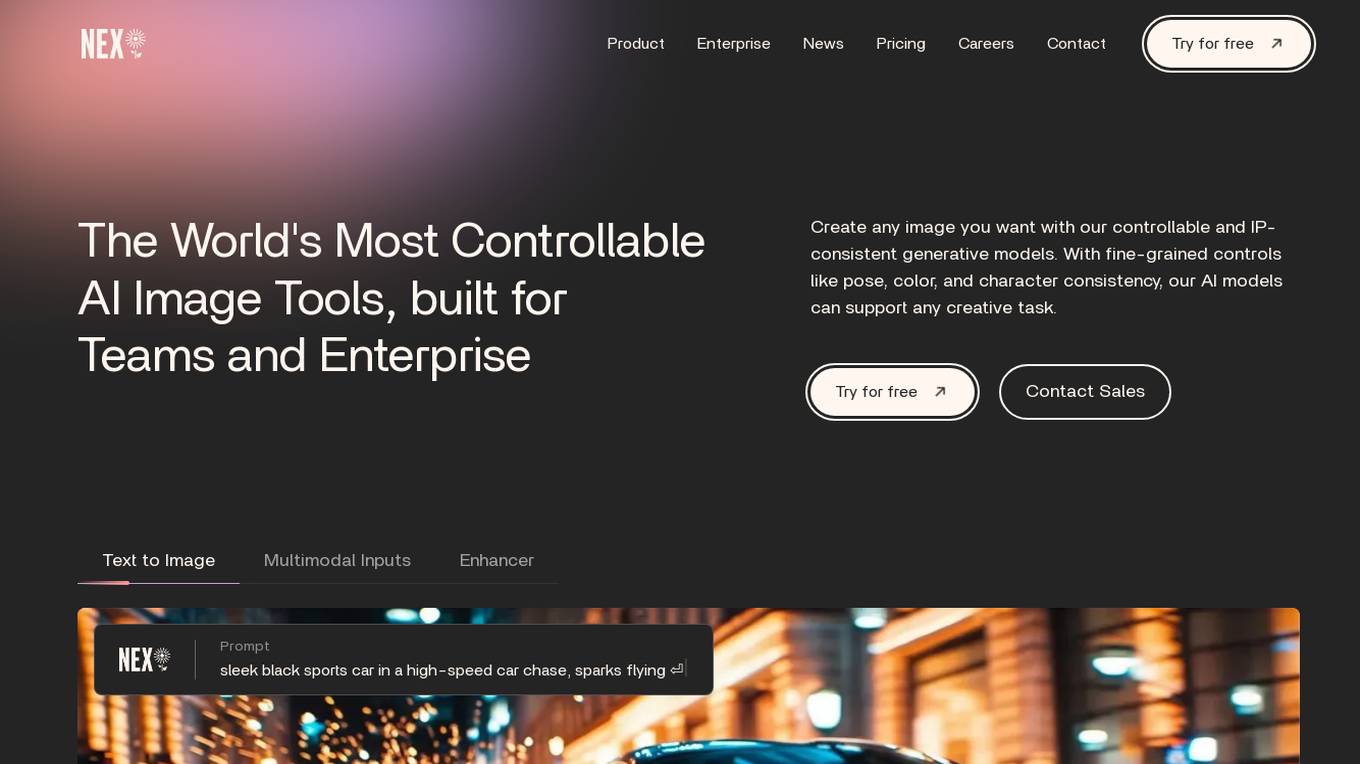
NEX
NEX is a controllable AI image generation tool designed for product creative image suite. It offers a variety of multimodal controls, IP-consistent models, and team workspaces to bring ideas to life. With fine-grained controls like pose, color, and character consistency, NEX supports any creative task. It provides tailored generative media models for various applications, private and custom-built AI models, and collaborative workspaces for secure data sharing. NEX is ideal for creative enterprises in media & entertainment, gaming, fashion, and more, offering up to 10x cost reduction in model development compared to competitors.
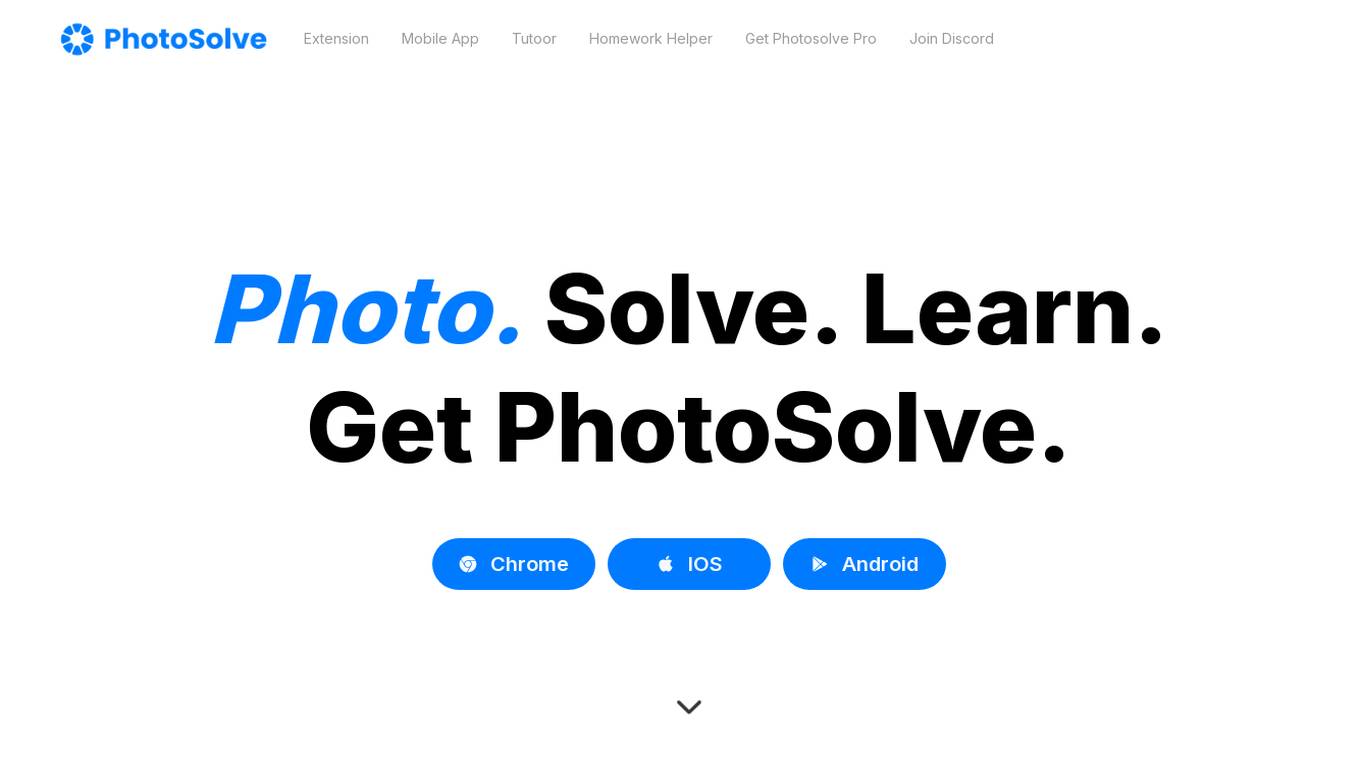
Photosolve
Photosolve is an AI-powered educational tool that helps students, teachers, researchers, and writers to quickly find accurate answers to their questions. It offers a Chrome extension and mobile app for easy access to its features. With over 10 million questions answered and growing, Photosolve revolutionizes learning by providing detailed explanations along with answers. Users can upload materials for analysis, have conversations with AI, generate flashcards, and enhance their knowledge with customizable quizzes. The application uses a custom-built AI model for higher accuracy compared to general AI models, ensuring reliable results for academic success.
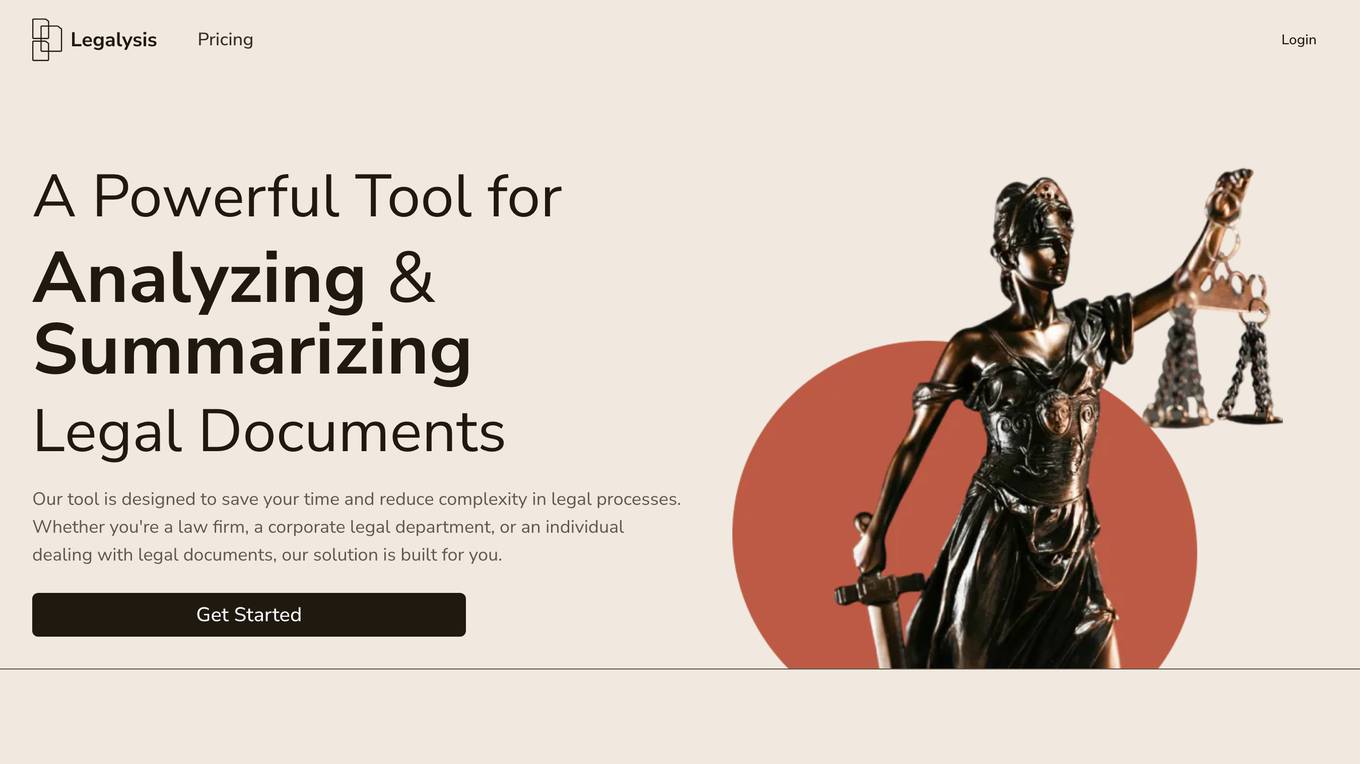
Legalysis
Legalysis is a powerful tool for analyzing and summarizing legal documents. It is designed to save time and reduce complexity in legal processes. The tool uses advanced AI technology to examine contracts and other legal documents in depth, detecting potential risks and issues with impressive accuracy. It also converts dense, lengthy legal documents into brief, one-page summaries, making them easier to understand. Legalysis is a valuable tool for law firms, corporate legal departments, and individuals dealing with legal documents.
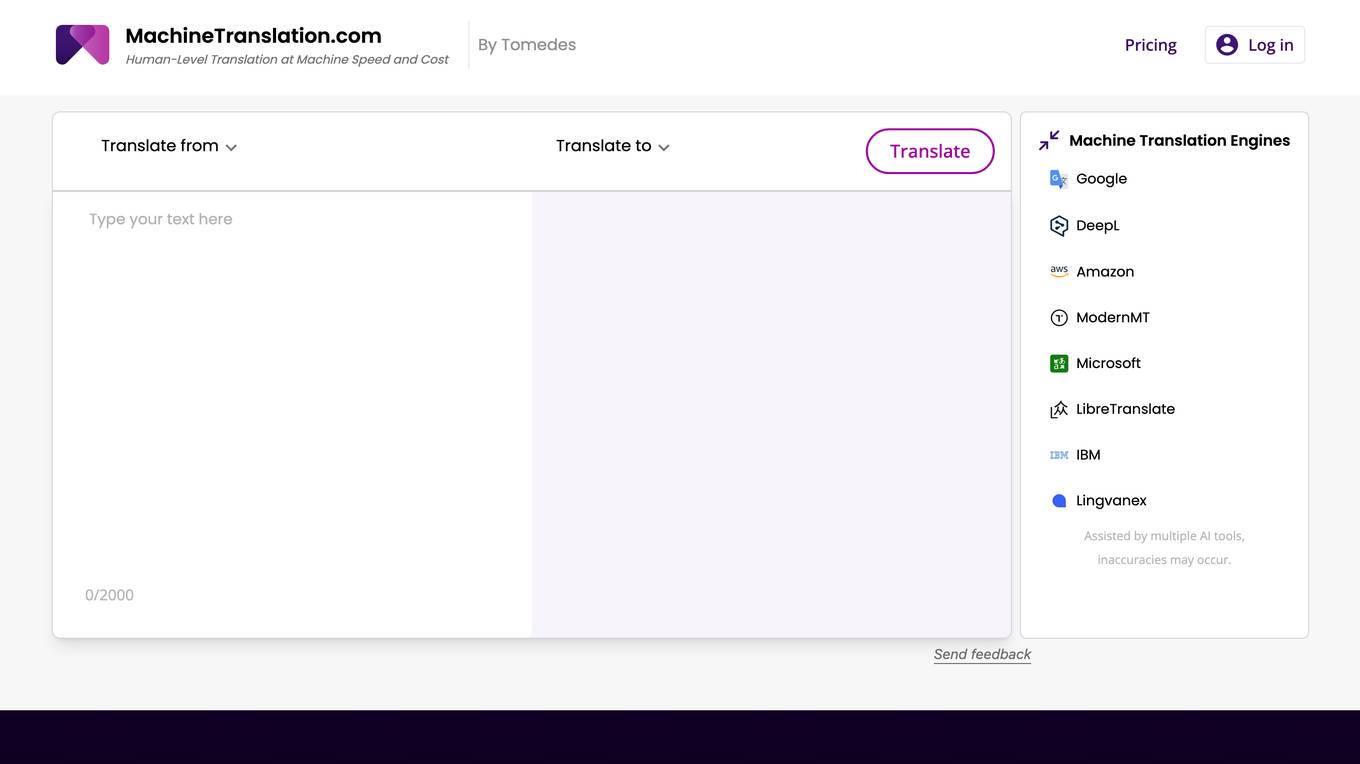
MachineTranslation.com
MachineTranslation.com is a leading AI translation platform trusted by over 1,000,000 users worldwide. It offers accurate translations in 330+ languages with 85% AI-powered accuracy and 100% accuracy with human review. The platform is designed for businesses, professionals, and individuals, providing secure translations, support for large files, preservation of original formatting, and the use of multiple AI models for consensus-based translations.

Dodda AI
Dodda AI (dodda.ai) is an AI application that automates site feasibility for Real Estate professionals, enabling quick decision-making by analyzing parcels in minutes. It offers a controlled environment focused on data accuracy, reliability, and scalability through a proprietary Land Use AI Model. Users can save up to 75% of their time compared to traditional methods, with features like instant ADU eligibility analysis, precise parking requirements calculation, feasibility determination, development options exploration, setback measurements, and more. The application is designed to enhance productivity in land development projects, providing verified results and unlocking opportunities with proprietary datasets.
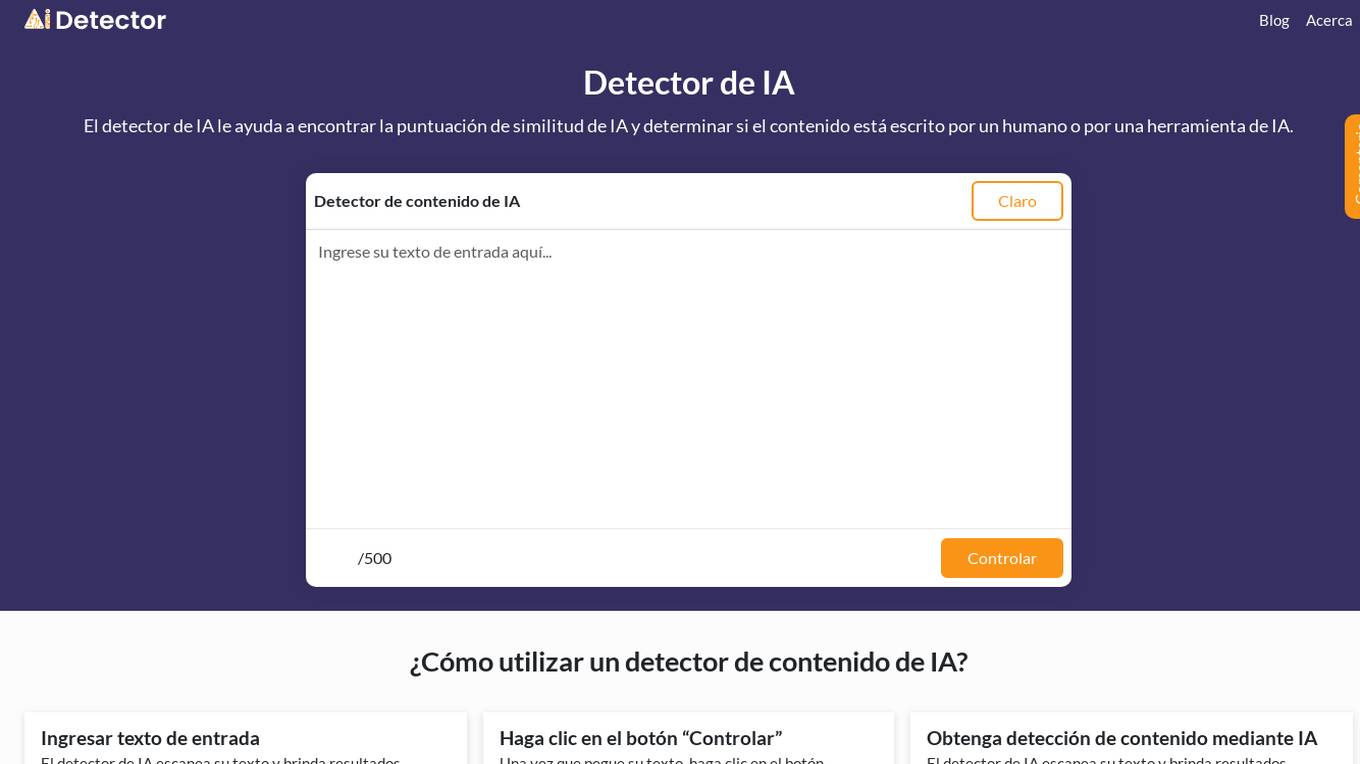
AI Content Detector
The AI Content Detector is an online tool that helps users determine the similarity score of AI-generated content and whether it was written by a human or an AI tool. It utilizes advanced algorithms and natural language processing to analyze text, providing a percentage-based authenticity result. Users can input text for analysis and receive accurate results regarding the likelihood of AI authorship. The tool compares syntax, vocabulary, and semantics with AI and human models, offering high accuracy in identifying paraphrased content.
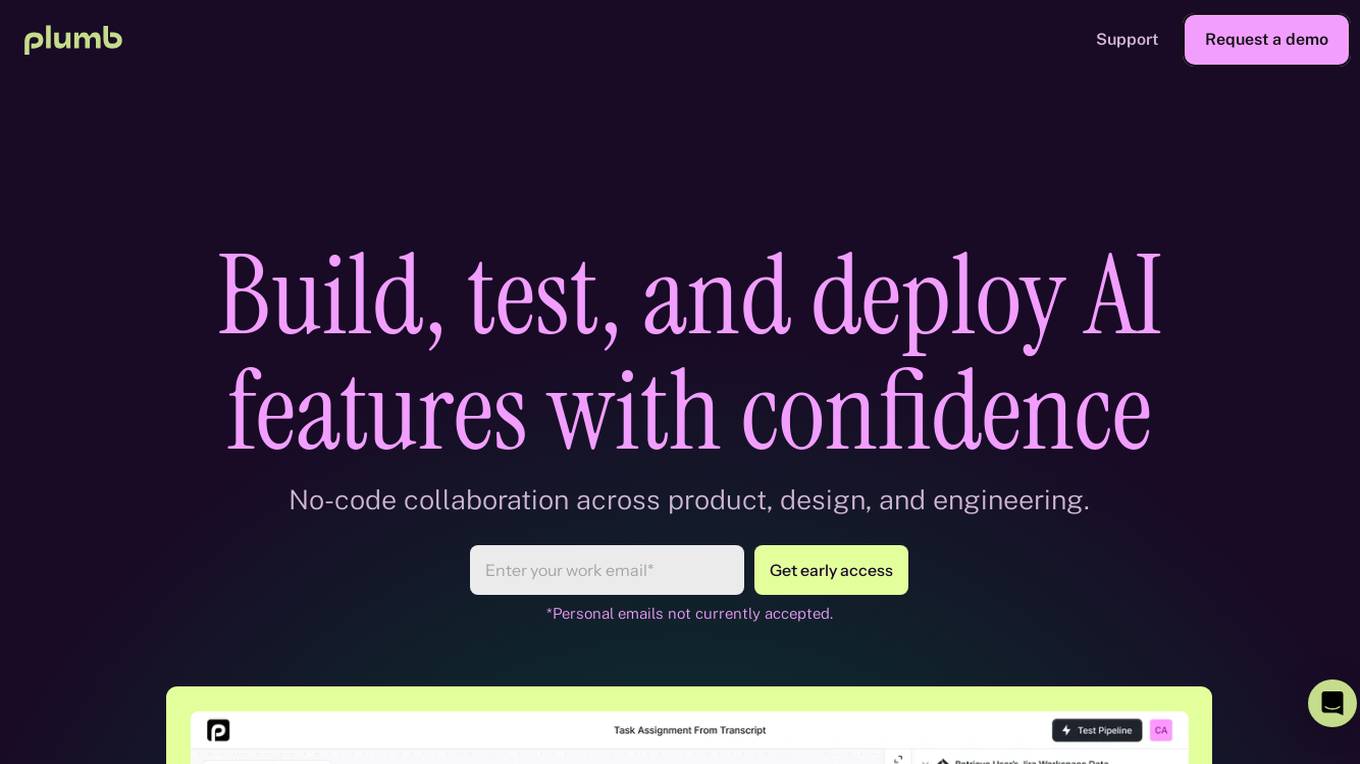
Plumb
Plumb is a no-code, node-based builder that empowers product, design, and engineering teams to create AI features together. It enables users to build, test, and deploy AI features with confidence, fostering collaboration across different disciplines. With Plumb, teams can ship prototypes directly to production, ensuring that the best prompts from the playground are the exact versions that go to production. It goes beyond automation, allowing users to build complex multi-tenant pipelines, transform data, and leverage validated JSON schema to create reliable, high-quality AI features that deliver real value to users. Plumb also makes it easy to compare prompt and model performance, enabling users to spot degradations, debug them, and ship fixes quickly. It is designed for SaaS teams, helping ambitious product teams collaborate to deliver state-of-the-art AI-powered experiences to their users at scale.

Flux LoRA Model Library
Flux LoRA Model Library is an AI tool that provides a platform for finding and using Flux LoRA models suitable for various projects. Users can browse a catalog of popular Flux LoRA models and learn about FLUX models and LoRA (Low-Rank Adaptation) technology. The platform offers resources for fine-tuning models and ensuring responsible use of generated images.
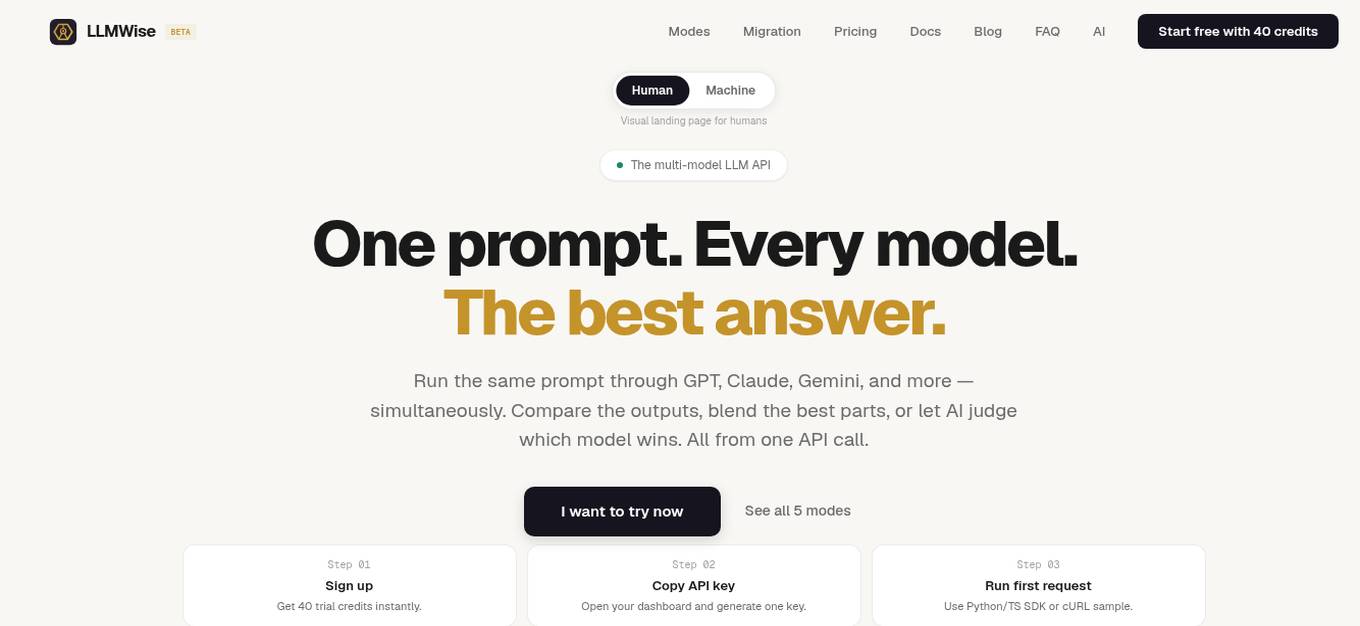
LLMWise
LLMWise is a multi-model LLM API tool that allows users to compare, blend, and route AI models simultaneously. It offers 5 modes - Chat, Compare, Blend, Judge, and Failover - to help users make informed decisions based on model outputs. With 31+ available models, LLMWise provides a user-friendly platform for orchestrating AI models, ensuring reliability, and optimizing costs. The tool is designed to streamline the integration of various AI models through one API call, offering features like real-time responses, per-model metrics, and failover routing.
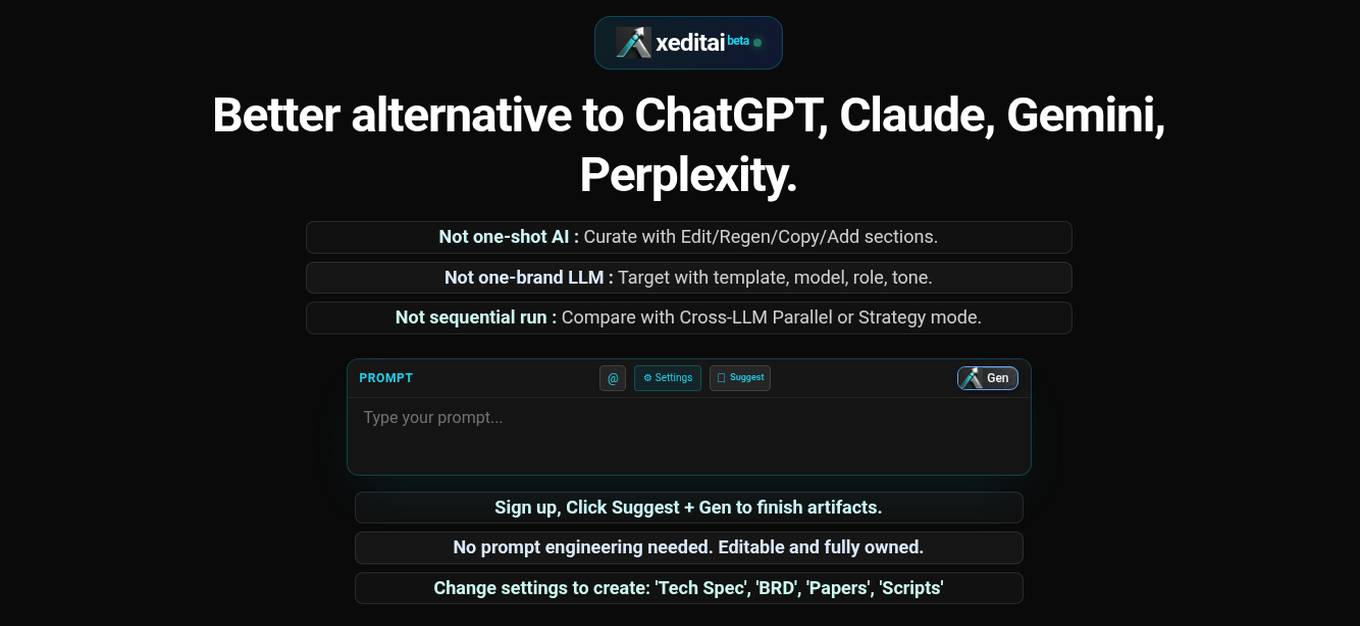
xeditai
xeditai is an AI-powered studio that provides a comprehensive workspace for creating content using various AI models. It offers a range of features such as rich-text editing, cloud persistence, templates & tones, parallel mode, strategy mode, export & share functionalities, and seamless switching between AI models. xeditai is designed for individuals and teams who need to iterate on ideas, draft, compare, refine, and structure content until the thinking is clear. It aims to facilitate the creation of finished, structured output without relying on chat prompts, providing a platform for real creation and serious work.
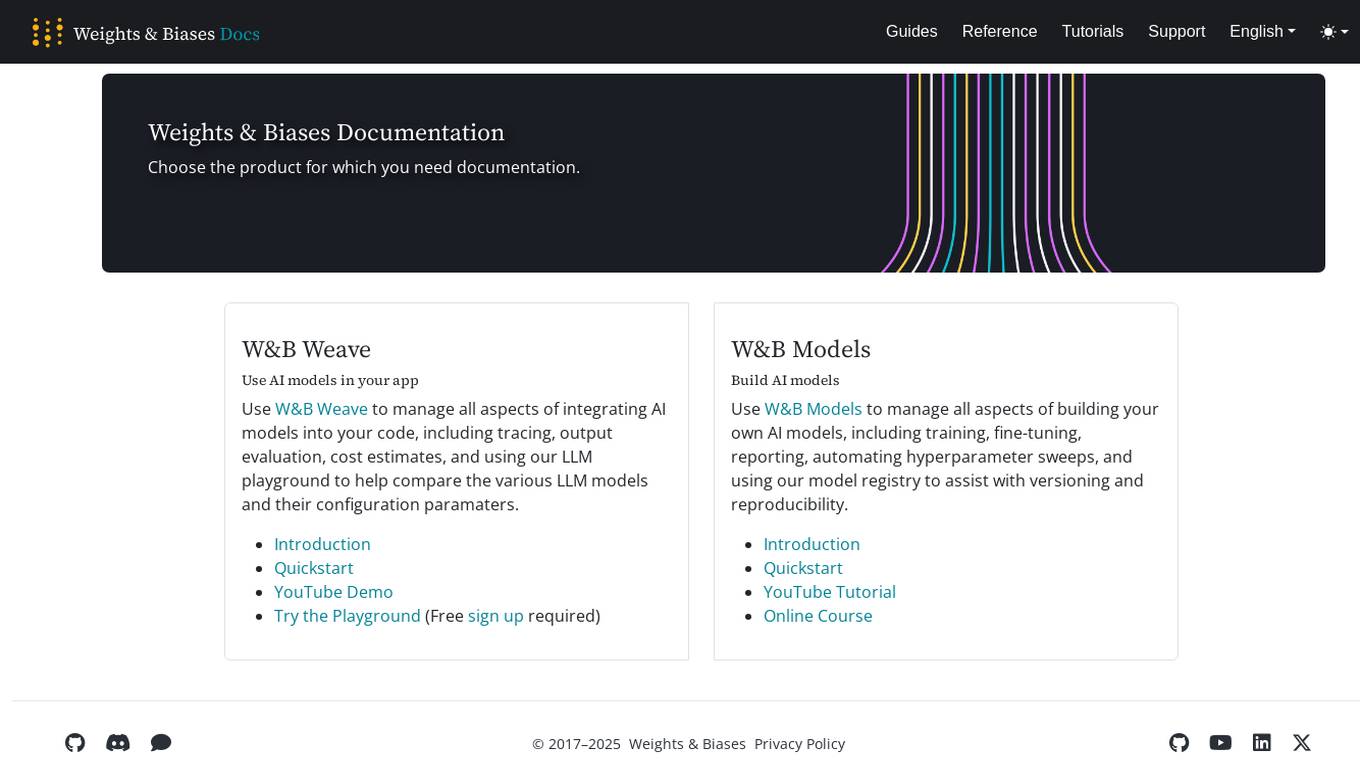
Weights & Biases
Weights & Biases is an AI tool that offers documentation, guides, tutorials, and support for using AI models in applications. The platform provides two main products: W&B Weave for integrating AI models into code and W&B Models for building custom AI models. Users can access features such as tracing, output evaluation, cost estimates, hyperparameter sweeps, model registry, and more. Weights & Biases aims to simplify the process of working with AI models and improving model reproducibility.
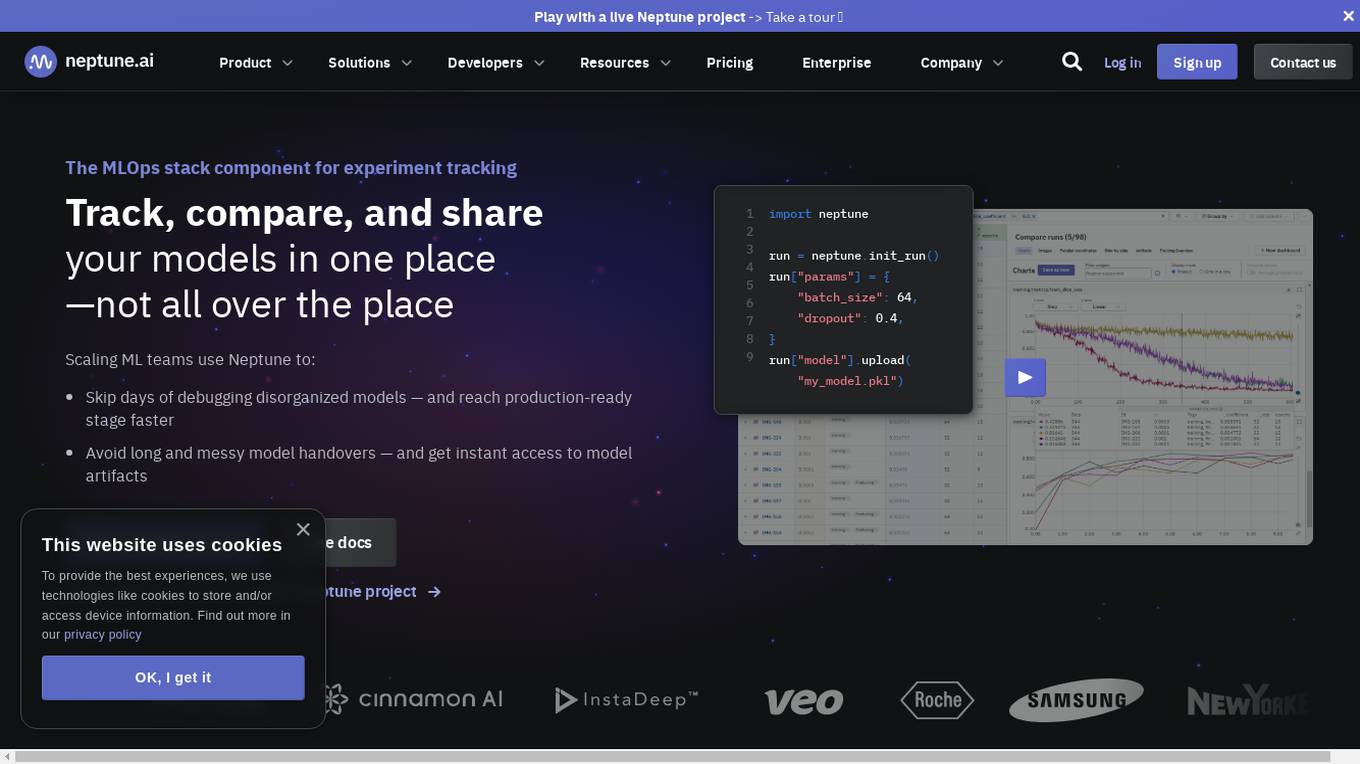
Neptune
Neptune is an MLOps stack component for experiment tracking. It allows users to track, compare, and share their models in one place. Neptune is used by scaling ML teams to skip days of debugging disorganized models, avoid long and messy model handovers, and start logging for free.
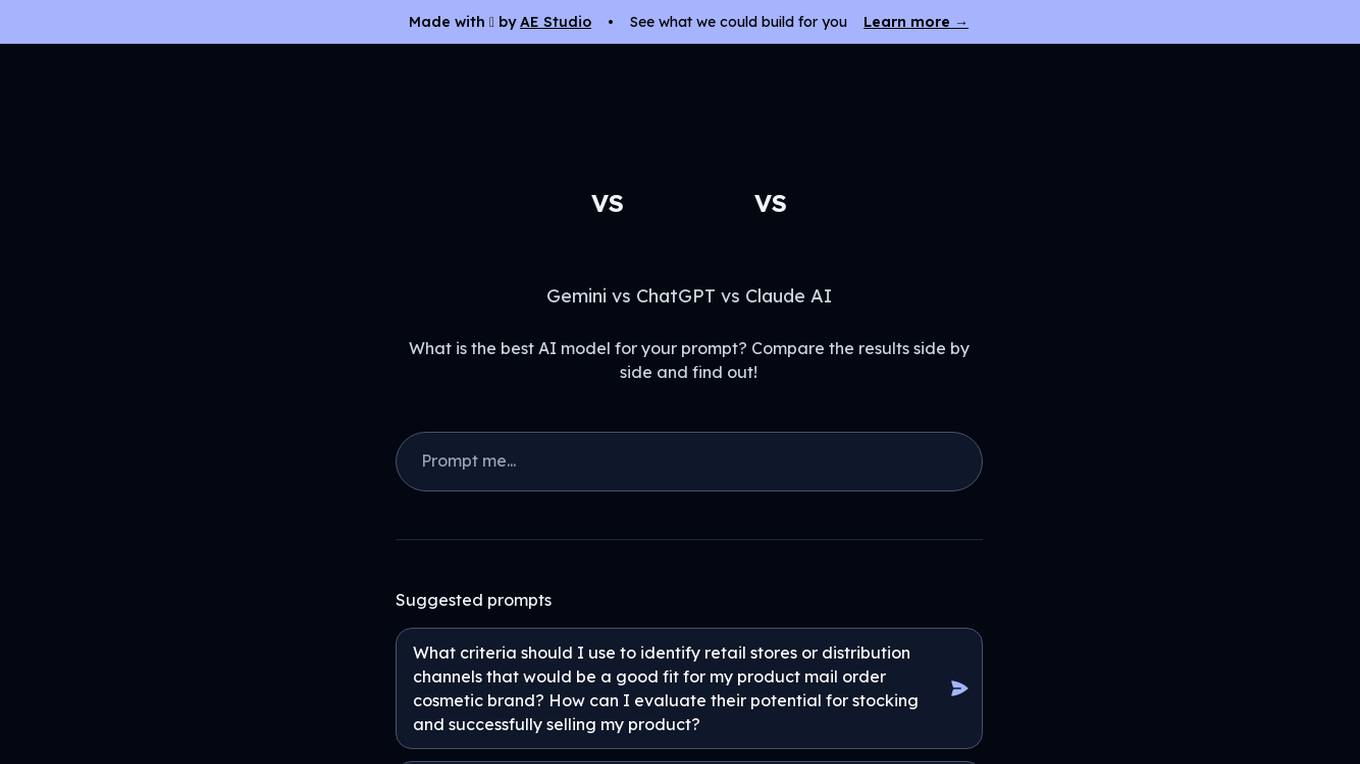
Gemini vs ChatGPT
Gemini is a multi-modal AI model, developed by Google. It is designed to understand and generate human language, and can be used for a variety of tasks, including question answering, translation, and dialogue generation. ChatGPT is a large language model, developed by OpenAI. It is also designed to understand and generate human language, and can be used for a variety of tasks, including question answering, translation, and dialogue generation.
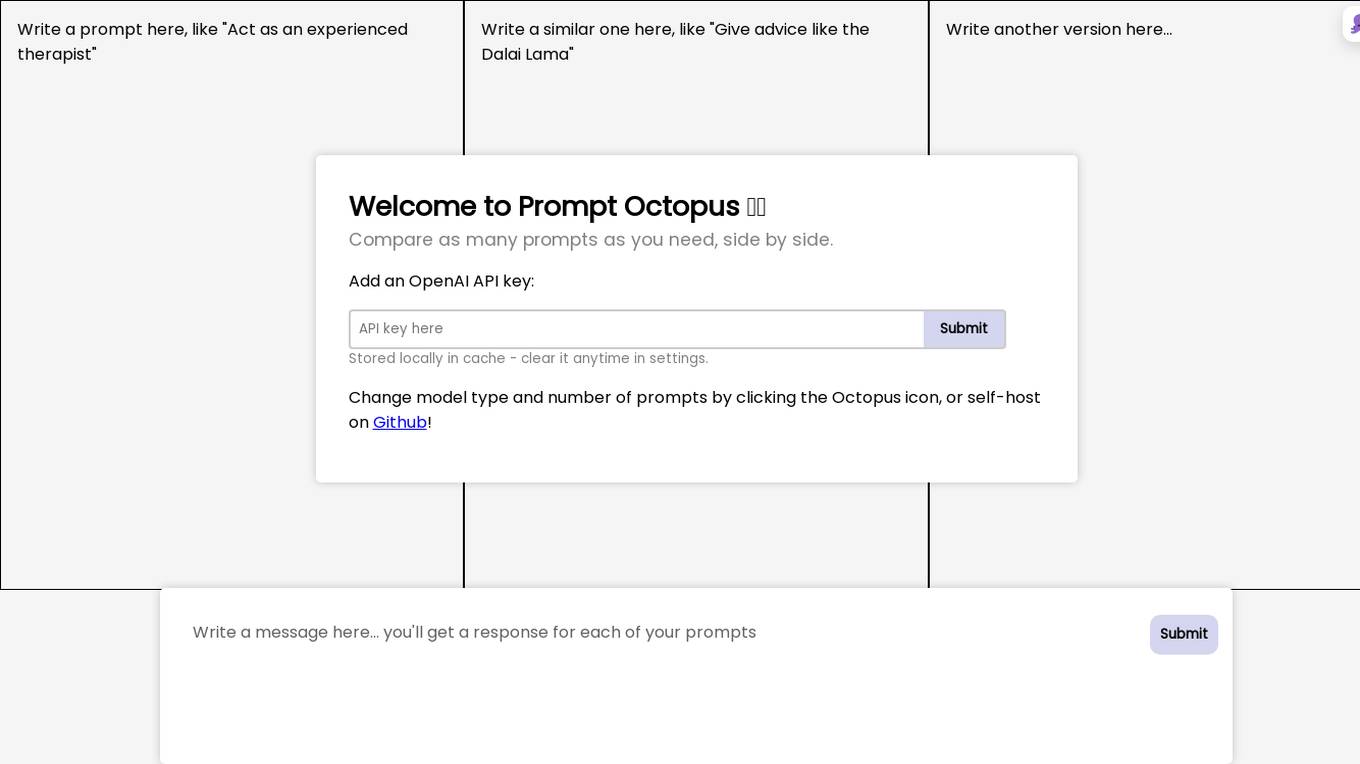
Prompt Octopus
Prompt Octopus is a free tool that allows you to compare multiple prompts side-by-side. You can add as many prompts as you need and view the responses in real-time. This can be helpful for fine-tuning your prompts and getting the best possible results from your AI model.
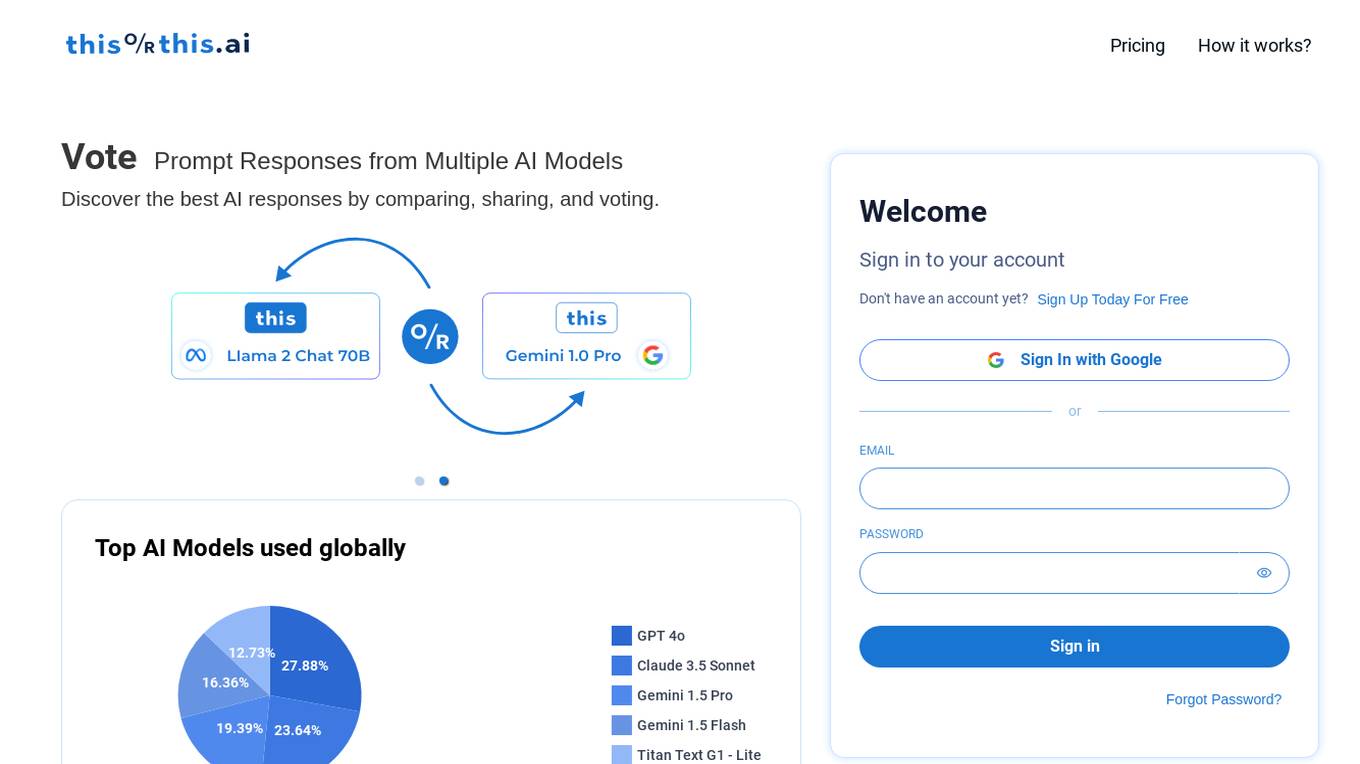
thisorthis.ai
thisorthis.ai is an AI tool that allows users to compare generative AI models and AI model responses. It helps users analyze and evaluate different AI models to make informed decisions. The tool requires JavaScript to be enabled for optimal functionality.

Rawbot
Rawbot is an AI model comparison tool that simplifies the process of selecting the best AI models for projects and applications. It allows users to compare various AI models side-by-side, providing insights into their performance, strengths, weaknesses, and suitability. Rawbot helps users make informed decisions by identifying the most suitable AI models based on specific requirements, leading to optimal results in research, development, and business applications.
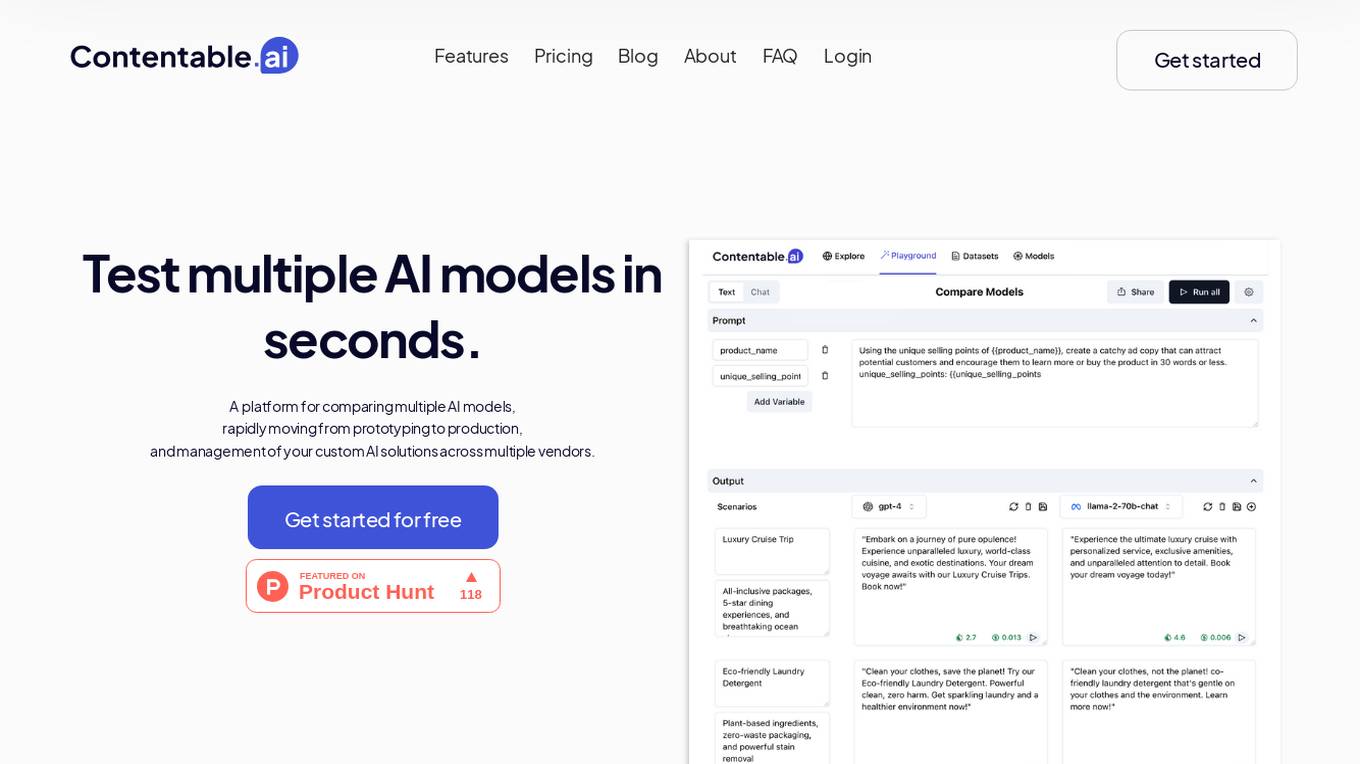
Contentable.ai
Contentable.ai is a platform for comparing multiple AI models, rapidly moving from prototyping to production, and management of your custom AI solutions across multiple vendors. It allows users to test multiple AI models in seconds, compare models side-by-side across top AI providers, collaborate on AI models with their team seamlessly, design complex AI workflows without coding, and pay as they go.
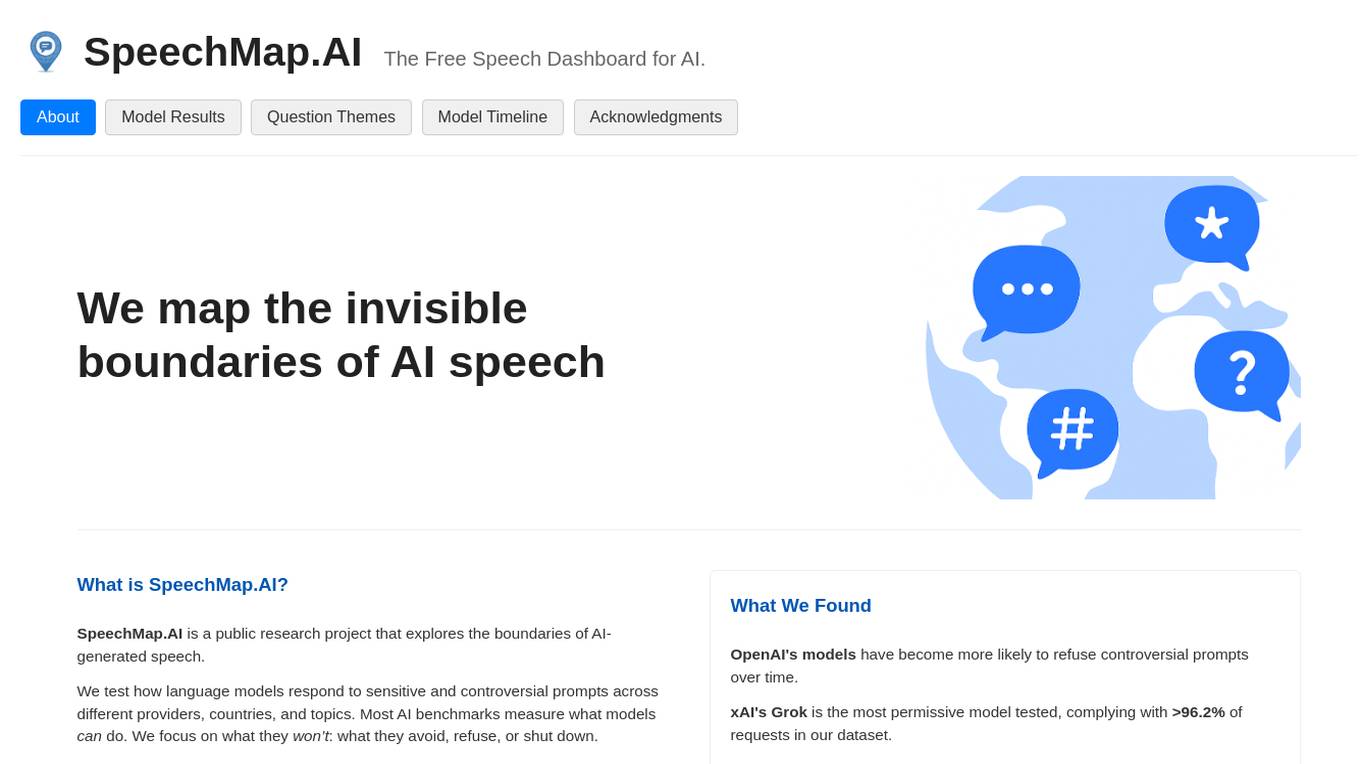
SpeechMap.AI
SpeechMap.AI is a public research project that explores the boundaries of AI-generated speech. It focuses on testing how language models respond to sensitive and controversial prompts across different providers, countries, and topics. The platform aims to reveal the invisible boundaries of AI speech by analyzing what models avoid, refuse, or shut down. By measuring and comparing AI models' responses, SpeechMap.AI sheds light on the evolving landscape of AI-generated speech and its impact on public expression.
1 - Open Source AI Tools
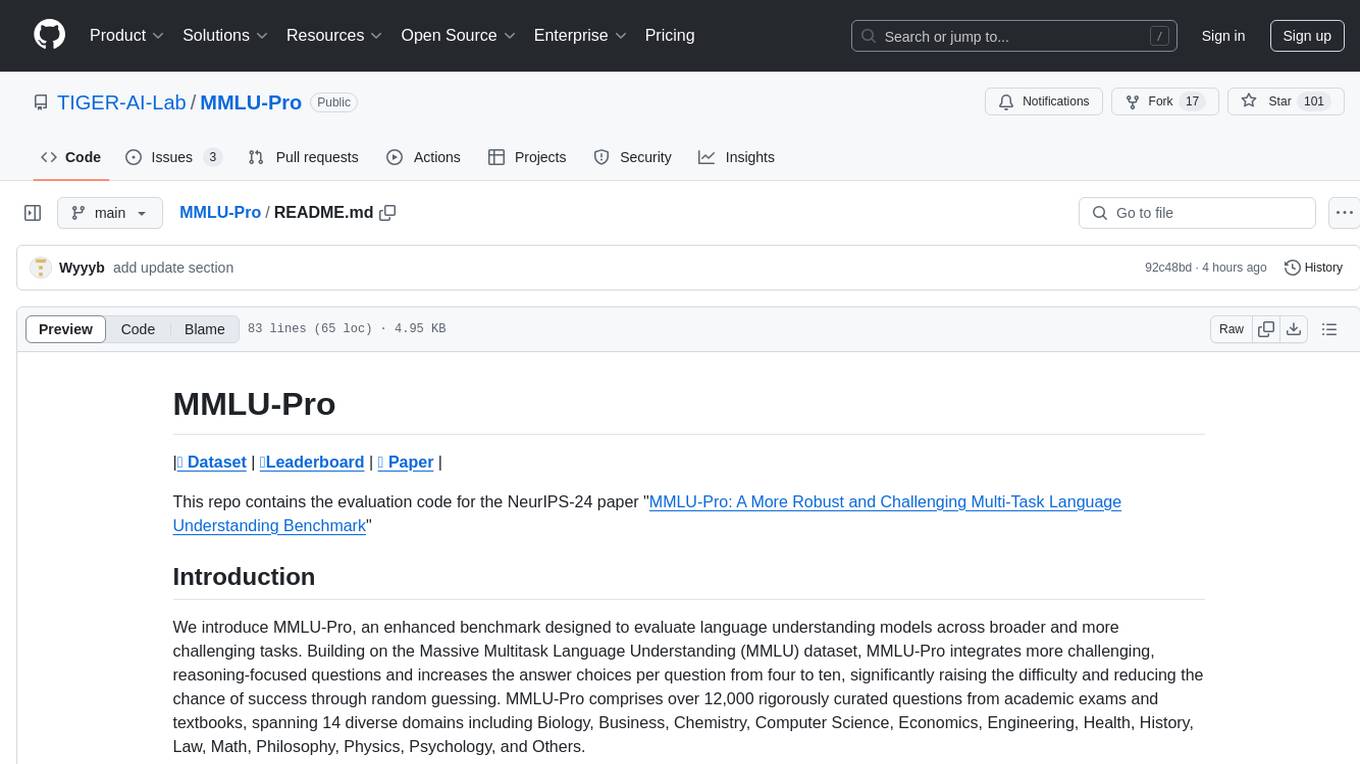
MMLU-Pro
MMLU-Pro is an enhanced benchmark designed to evaluate language understanding models across broader and more challenging tasks. It integrates more challenging, reasoning-focused questions and increases answer choices per question, significantly raising difficulty. The dataset comprises over 12,000 questions from academic exams and textbooks across 14 diverse domains. Experimental results show a significant drop in accuracy compared to the original MMLU, with greater stability under varying prompts. Models utilizing Chain of Thought reasoning achieved better performance on MMLU-Pro.
20 - OpenAI Gpts
Best price kuwait
A customized GPT model for price comparison would search and compare product prices on websites in Kuwait, tailored to local markets and languages.

Auto Advisor
A helpful guide for car buyers, focusing on potential issues with different car models.
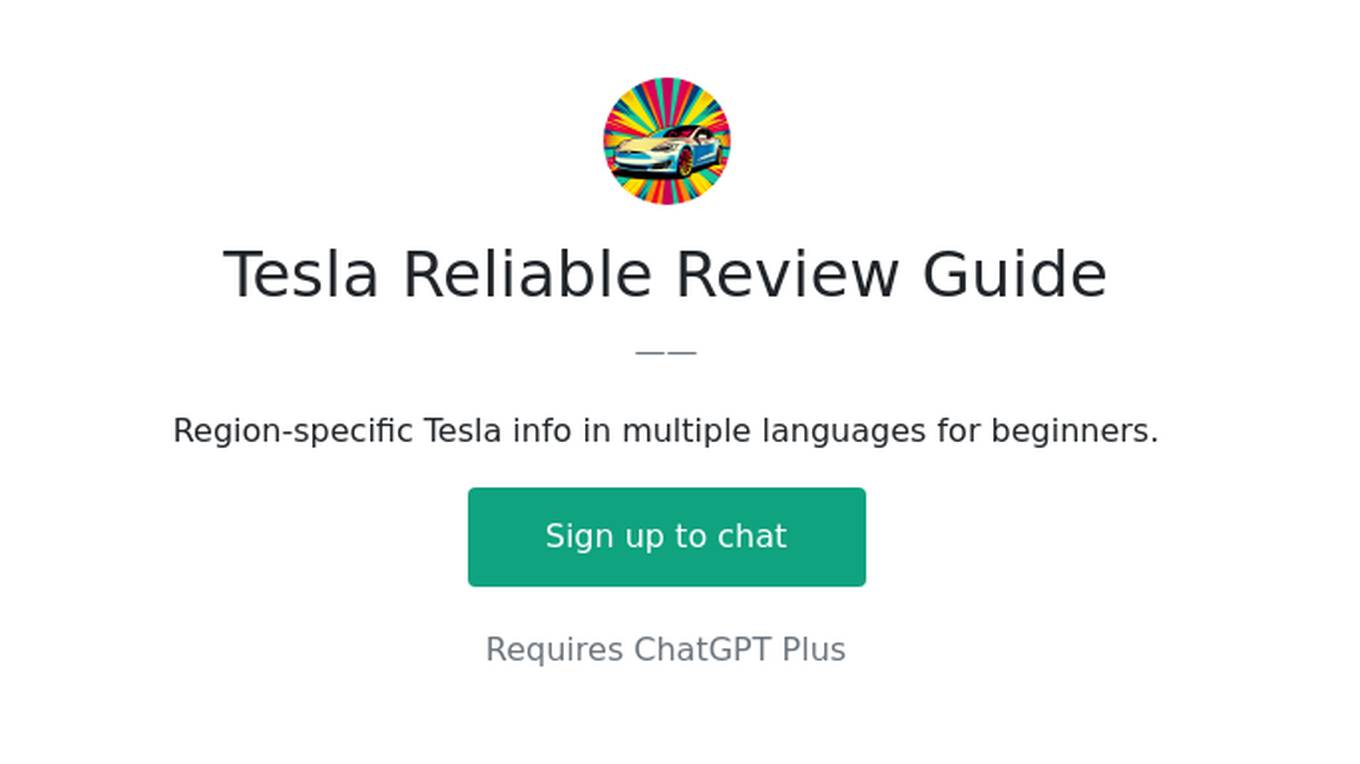
Tesla Reliable Review Guide
Region-specific Tesla info in multiple languages for beginners.
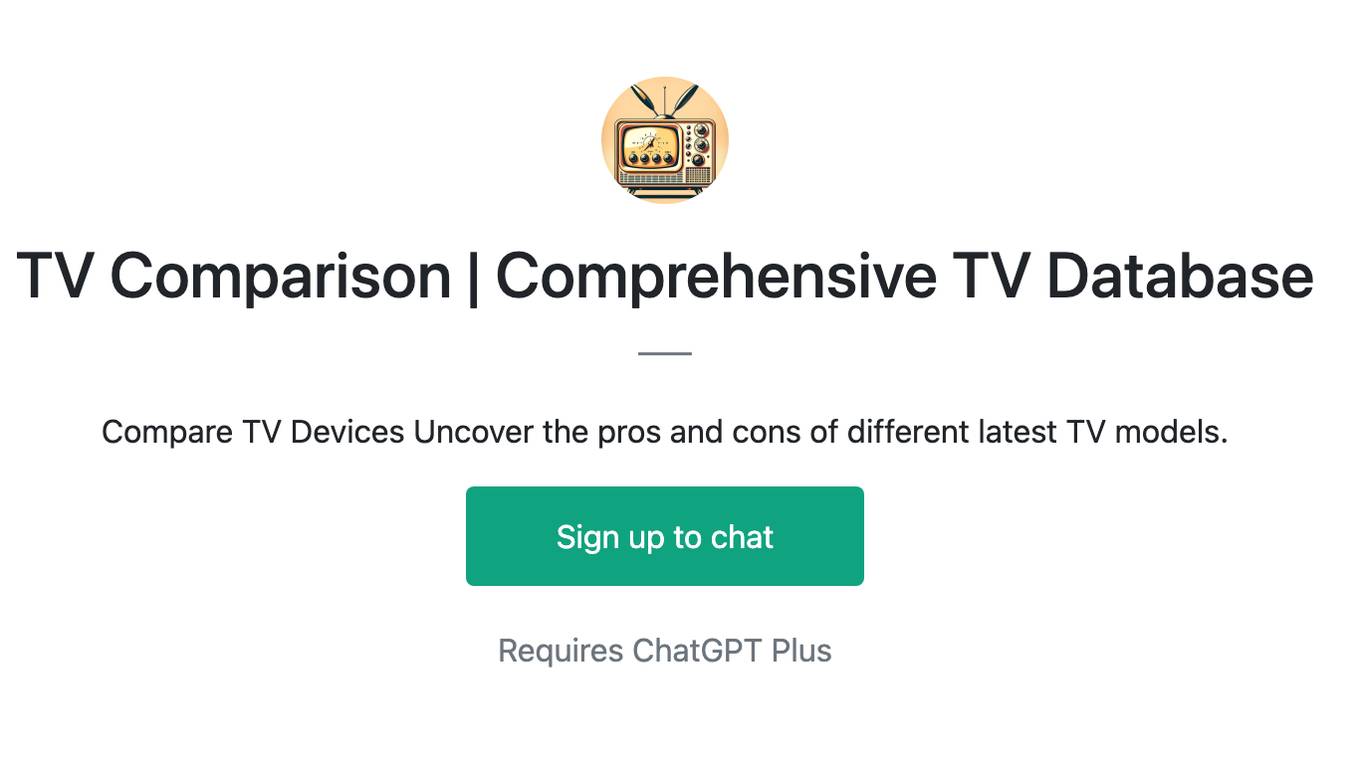
TV Comparison | Comprehensive TV Database
Compare TV Devices Uncover the pros and cons of different latest TV models.
